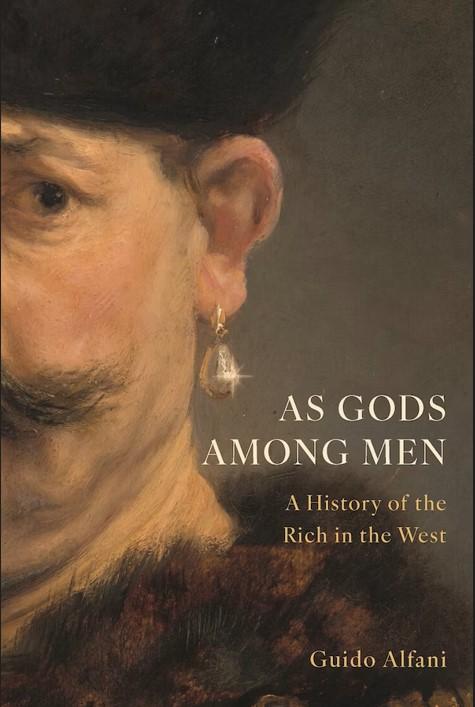 Wealth is clearly a sign of inequality. Guido AlfaniProfessor Alfani, from the Department of Social and Political Sciences at Bocconi University, described the evolution of social inequality over the last millennium and the attitude of ordinary people towards the wealthy. His book, God Among Men, published by Princeton University Press, received great acclaim in the international media. It is now available in Europe after being released in the US at the end of 2023. Below is the preface to the book, courtesy of the author and publisher.
Wealth is clearly a sign of inequality. Guido AlfaniProfessor Alfani, from the Department of Social and Political Sciences at Bocconi University, described the evolution of social inequality over the last millennium and the attitude of ordinary people towards the wealthy. His book, God Among Men, published by Princeton University Press, received great acclaim in the international media. It is now available in Europe after being released in the US at the end of 2023. Below is the preface to the book, courtesy of the author and publisher.
Today, Western society seems to be obsessed with the rich: who are they, how did they get rich, how do they behave or misbehave? Praised and flattered, but also criticized and despised, the rich, especially the super-rich, are increasingly the subject of debate in civil society. Some of them choose to become celebrities, which has become easier than ever before thanks to new communication technologies and the widespread use of social media. A lot seems to have changed since the Middle Ages, where the rich were expected not to look rich (at least not to reveal all their wealth), but the excessive accumulation of material resources was even considered inherently sinful and damaging to the correct functioning of a perfect (Christian) society and its institutions, especially the political one. If, as medieval commentators argued, the super-rich were given “equal” access to political institutions, they would in effect behave “like gods among men”, which is obviously not desirable.
But how much has really changed? The very fact that the rich, then and now, are the subject of so much discussion suggests that they have struggled, then and now, to find or be given a proper place in society. These connections between past and present are hidden, but they are immediately obvious if you look for them. This is the main purpose of this book. This is not a simple description of the lives and deeds of the rich and the super-rich, nor is it a book born out of personal interest or aversion to them. It is an attempt to write a general history of the wealthy through the ages. Many examples are given, and it makes sense to include short stories about the lives of certain extraordinary people (such stories are often very entertaining, as well as scientifically illustrative and useful), but these examples are then integrated into a general, systematic discussion.
A lot has changed over time, and it is true that today's wealthy did not make their wealth in exactly the same way as the wealthy of the Middle Ages (Elon Musk is no Alan the Red), much less in the classical era. But the questions we want to answer, in both past and present societies, are broadly the same. From a social science perspective, including an economic and social historian like me, it is precisely because of these common questions that it makes sense to attempt a comprehensive analysis that systematically covers the period from the Middle Ages to today, with frequent interventions in the classical era. And this approach is necessary if we want to address deeper and more important questions: What continuities exist across time? Why are the wealthy of today similar to the wealthy of the past? How do these similarities help to cause social unrest by their very existence? This unrest seems to be characteristic of Western societies in all eras. To answer, we must take a historical approach. First, because without paying attention to the historical context, we risk comparing pears with apples, so to speak. Secondly, if we don’t look at the past, especially over the long term, we will never realise some of the more relevant and interesting questions to explore.
This is not a book that “blames” the rich, but a book that “talks” about the rich. There is no a priori intention to condemn the current behavior of the rich or to exploit social discontent to attract attention. Rather, the book has its origins in a genuine scientific interest in what rich people were like in the past, which grew almost accidentally out of a more general academic interest in long-term trends in economic inequality. The sudden realization that the rich as a specific category had rarely been the subject of proper scientific study, especially in pre-industrial times, slowly grew into an ambitious project.

